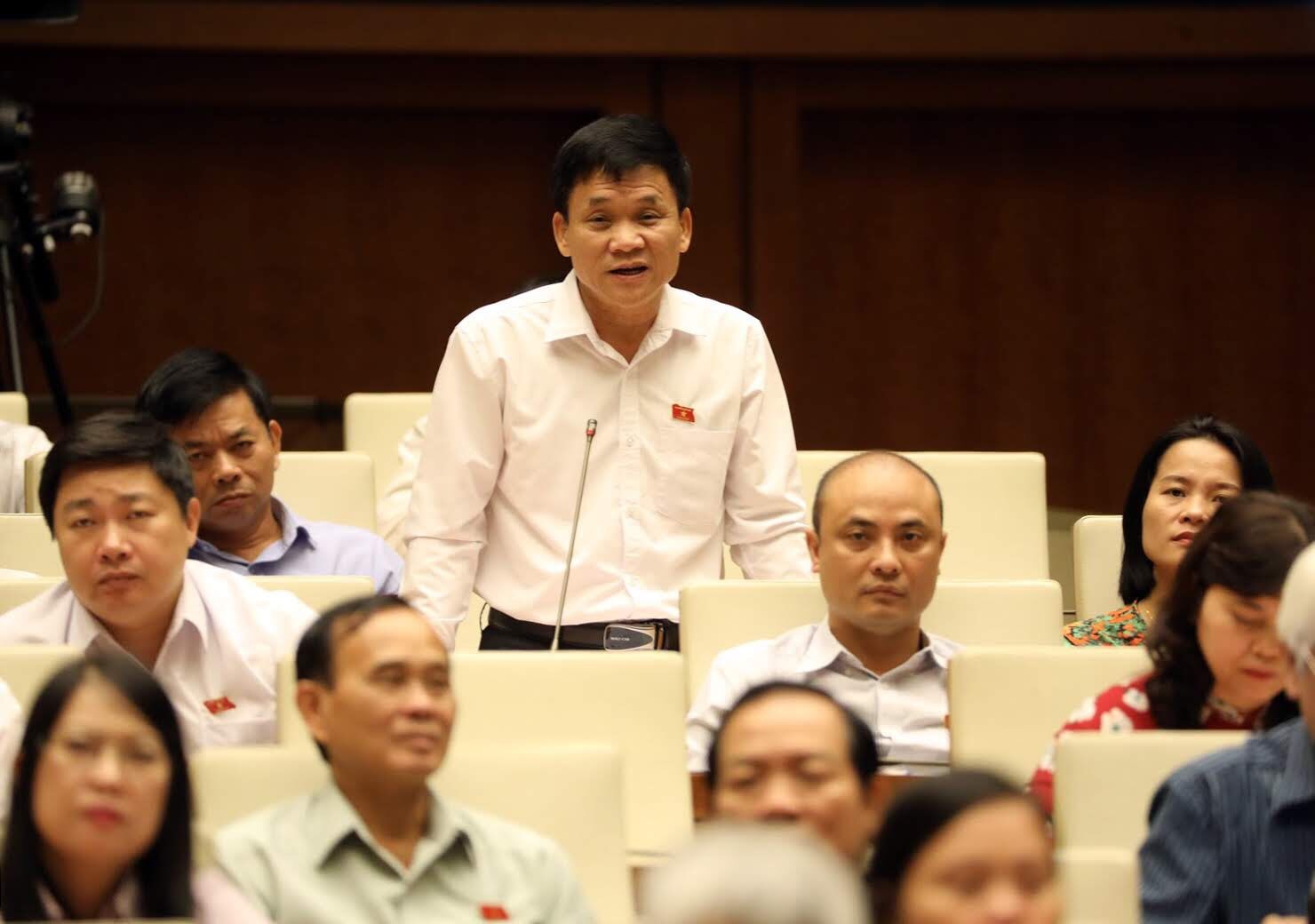Amnesty Law needs to be built transparently and strictly
(Baonghean.vn) - Delegate Tran Van Mao said that the nature of amnesty is the State's leniency policy towards criminals, therefore, it is necessary to have clearer regulations to avoid creating public misunderstanding about the State's leniency policy.
On the morning of November 7, under the chairmanship of Vice Chairman of the National Assembly Uong Chu Luu, the National Assembly discussed the draft Amnesty Law (amended).
On behalf of the National Assembly delegation of Nghe An province, delegate Tran Van Mao expressed his agreement with the explanatory report of the National Assembly Standing Committee on the draft Amnesty Law, and clarified a number of issues.
 |
| Delegate Tran Van Mao speaks at the parliament. Photo: Thanh Loan |
Regarding the conditions for being proposed for amnesty in Article 11, delegate Tran Van Mao said that at point c, clause 1, Article 11 of the draft law, the provision that the court fees and fines must be completed before being considered for amnesty is not entirely correct. Because the nature of amnesty is the State's leniency policy towards criminals.
According to Mr. Mao, at the time of considering amnesty, cases of people who are too poor and do not have enough money to pay the fine, but have good reform or great achievements, should be proposed to the President for decision. At the same time, it is necessary to clarify this issue to avoid creating public misunderstanding about the State's leniency policy.
Regarding the concept of "making great achievements", delegate Tran Van Mao proposed to clarify this concept at point a, clause 2, Article 11: "Having made great achievements during the time of serving a prison sentence with confirmation from the prison, detention camp, criminal enforcement agency, district-level police", or to include an explanation of the term in Article 3 to clarify the concept of "making great achievements".
Delegate Tran Van Mao said that "making great achievements" can be explained in the direction that the offender has repented, reformed, actively helped the responsible agencies to detect and investigate the crimes they committed, and at the same time took actions to help the competent agencies detect and prevent other criminals from participating, detect crimes, arrest criminals, and have actions showing selflessness for the benefit of the State, the collective, and for the legitimate rights and interests of others, and has been commended or certified by the competent agency.
In addition, to ensure transparency, strictness and create conditions for agencies in the process of advising and submitting to the President for decision on amnesty, delegate Tran Van Mao proposed to remove the provision on other cases decided by the President at Point i, Clause 2, Article 11. If it is a special, specific case that meets the State's internal and external requirements, Article 22 of the draft law stipulates that the President decides on amnesty in special cases regardless of the conditions specified in Articles 11 and 12 of the draft law.
Delegate Mao also gave analysis on the implementation of amnesty decisions for foreigners. In Article 19, in case competent authorities of Vietnam have notified diplomatic missions and consular offices of the country of which the pardoned person is a citizen, but these agencies do not come to receive or have not yet come to receive the pardoned foreigner, the pardoned foreigner will be arranged to stay at an accommodation facility designated by the criminal enforcement agency while waiting for necessary procedures; at the same time, a person must be arranged to closely monitor the pardoned person.
This provision is consistent with Clause 4, Article 40 of the Law on Enforcement of Criminal Judgments, and at the same time specifies the leniency policy of our State towards foreigners who commit crimes. Therefore, delegate Tran Van Mao suggested that the drafting agency study and supplement the above contents to implement the amnesty decision for foreigners more specifically, and should not be regulated by the Government. At the same time, it is necessary to carefully consider the residence of foreigners who are granted amnesty to ensure compliance with the provisions of the Vietnamese legal system and international laws that Vietnam has signed.
Regarding the responsibilities of the interdisciplinary appraisal team in Article 36, it is stipulated that the members of the interdisciplinary appraisal team include representatives of central agencies, but not specifying the hard component as representatives of local authorities, which is unreasonable and can easily lead to confusion, omission or unfairness in the amnesty process. Delegate Tran Van Mao suggested that the Drafting Committee consider adding the members as well as related contents on responsibilities, obligations and related contents of the appraisal team.
In addition, delegate Tran Van Mao also proposed a number of issues such as: the supervisory responsibility of the agency in organizing the implementation of amnesty to ensure objectivity; redefining the effective period of the law.


